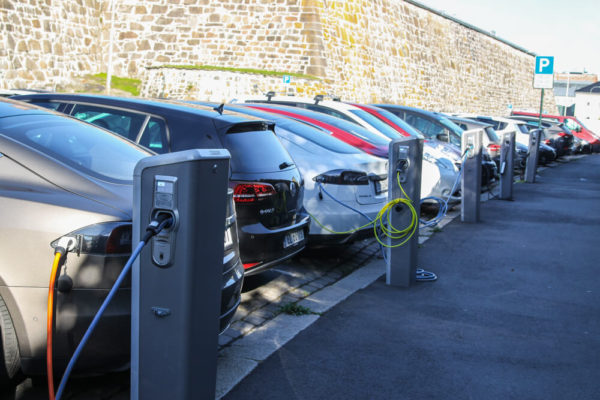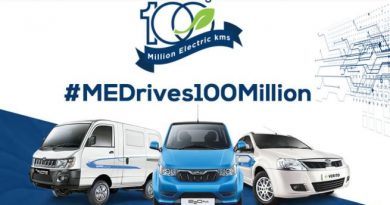Norway is the way. 3rd Largest EV Market in the World
A decade after introducing an incentive-based EV policy, Norway’s sales of electric cars was just 6%. However, in the last five years, this number has jumped to 47% and with that, the European country with a population of just 5.3 Mn has become the world’s third largest market for EVs after the US and China.

Last week Norway’s automotive industry body, the Norwegian Road Traffic Information (OFV) revealed that almost a third of new cars sold in Norway last year were pure electric, a new world record for the country that is striving to end sales of fossil-fueled vehicles by 2025. According to the OFV, out of the 147,929 new passenger cars registered in 2018, 31.2 percent were all-electric vehicles recording a 40 percent growth in EV sales which contributed to 1 in every 3 new vehicles to be electric.
Additionally, if all plug-in vehicles are also included in the tally, 49.1 percent of the market last year was owned by electric and hybrid vehicles. This silent transformation was sparked partly due to the Norwegian policymakers’ foresight, abolishing the import tax on EVs way back in 1990 and to removing duties and registration and sales taxes for buyers of electric cars. To further aid in the faster adoption of the electric vehicles, owners also don’t have to pay road tolls and get free use of ferries and bus lanes in congested city centers.
This change in public opinion did not happen overnight. A decade after introducing an incentive-based EV policy, Norway’s sales of electric cars was just 6%. However, in the last five years, this number has jumped to 47% and with that, the European country with a population of just 5.3 Mn has become the world’s third largest market for EVs after the US and China.
Øyvind Solberg Thorsen, CEO of OFV said, “2018 was the year when new passenger cars that go on alternative fuels fortified their strong position in the market. With this, Norway consolidates itself in the top layer in the world when it comes to selling cars with alternative fuel.”
Overall, car sales declined somewhat in 2018 compared to the peak year 2017. A total of 147,929 new passenger cars were registered, well below the OFV forecast of 157,700 cars. Despite the decline, last year was the year with the sixth highest car sales in history. “We notified a decline, but especially due to the delivery situation for electric cars and the transition to a new measurement method for consumption, the downward trend has been somewhat stronger than expected,” Solberg Thorsen told a local news agency.
Nissan Leaf was the top-selling car last year, with over 8 percent market share, while other top-selling cars overall ranged from small BMWs and Volkswagens to full-size sedans and electric sport utility vehicles by Tesla.
The Institute of Transport Economics (ITE), a consultancy firm has cast doubt on the 2025 goal for emissions-free new cars. Lasse Fridstroem and ITE economist said, “Strictly speaking I don’t think it’s possible, primarily because too many people don’t have a private parking space and won’t want to buy a plug-in car if they can’t establish a charging point at home. We may be able to get to a 75 percent (market share), provided that the tax breaks are maintained.”
If Norway will be able to achieve its target for 2025, but one thing that it has done right is set what is possibly the most aggressive e-mobility adoption target in the world and then support it with policy changes and exemptions.
Coming from a major oil exporting country that has always seemed to prepare for a world where oil will not be the answer to energy needs, Norway’s example is one other oil producers, notably Saudi Arabia would do well to learn from.






